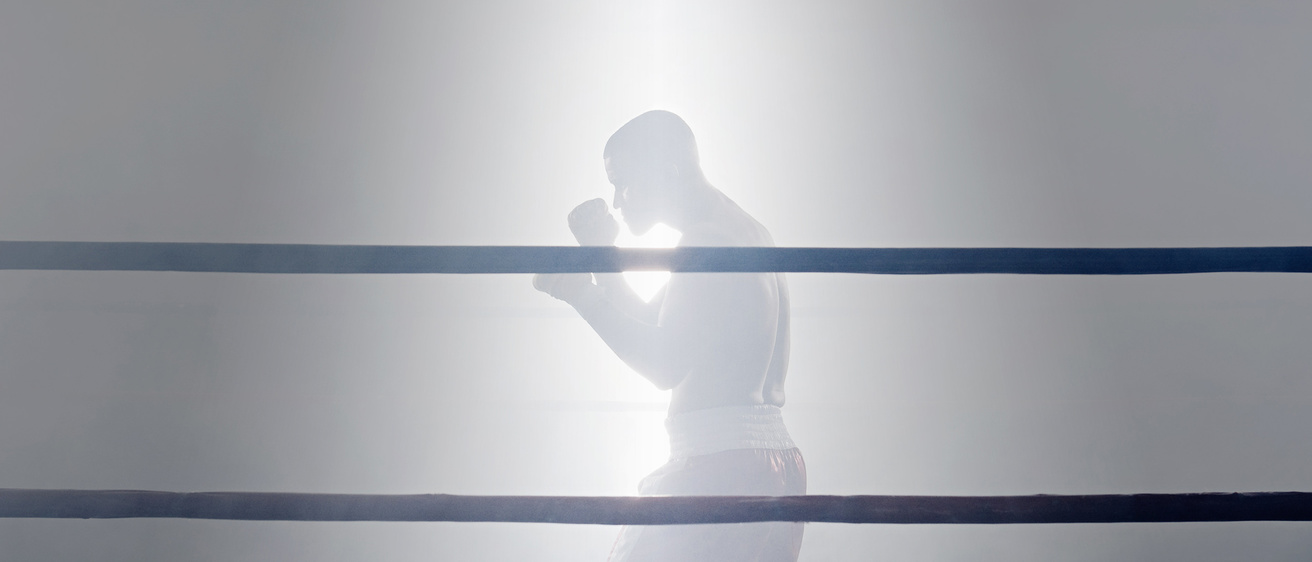
Jose Duran (BBA20) was a scrawny 16-year-old kid staring up at what seemed like a monster in the ring at the Des Moines Police Boxing Club. It was Duran’s first career fight, and his opponent was 10 years older, several inches taller, and a whole lot faster.
“He seemed to have every advantage,” Duran says. “It was a boy going up against a man. Literally.”
But his coach, John Saunders (BA86), the Des Moines police officer who manages the club, had trained him to look for his opponent’s weaknesses. He took Saunders’ words to heart because he was as close to a father figure as he had just then, as his own father was far away in Mexico.
With the words of his coach in his head, he detected a weakness in the monster—the older boxer relied on speed and strength and didn’t seem to offer much in the way of strategy or analytical skills. Duran realized that if he out-thought his opponent, he’d have a chance to win.
“And I beat him,” Duran says. “I blew him out of the water. It’s still one of the highlights of my life.”
In some ways, Duran’s whole life has been like that—a kid who had every reason to give up, but used his strengths to find a way to win and move forward. That never-quit attitude helped him to graduate in May 2020 with bachelor’s degrees in economics and finance from the Tippie College of Business.
“Boxing provided me with structure and discipline and changed the trajectory of my life.”
Trying to figure out how to beat bigger, stronger boxers was just one hurdle Duran had to overcome to get to where he is. He was born to undocumented immigrants from Mexico who returned to their home country when he was in eighth grade with the expectation of quickly returning to the States legally. But after arriving in Mexico, they found out that they would have to wait 10 years before they could return to the U.S. They remain in their village in Mexico, where they own a convenience store, waiting to come back home to Iowa.
Duran stayed with them for a year in Mexico, attending eighth grade in the local school even though, having grown up in the United States, he couldn’t speak more than a few words of Spanish. But with the help of a kind teacher, he was able to quickly master Spanish. By the end of the school year, he was one of the best students in the class and today can speak fluently in 10 dialects of the language.
He returned to Iowa after that year to attend Des Moines East High School, living with his sister, Diana, a single mother with two children of her own. It was around this time that he met Des Moines entrepreneur and philanthropist Bill Knapp, who was a benefactor of Duran’s boxing club.
“I was outside the club one day and he pulled up in a Ferrari. When I found out what he did for a living, that’s when I started to think I’d rather go into business than box professionally,” Duran says.
Eventually, with Saunders’ continued encouragement, Duran decided to pursue a business education. He started at Des Moines Area Community College, then transferred to Iowa his junior year.
According to Duran, Gabriela Rivera was a big influence, inspiring him to mentor students in the BizEdge and Tippie Gateway Programs. He also credits finance faculty members Jon Garfinkel and Jeffrey Hart for inspiration, and Todd Houge, the adviser of the Krause Fund, in which Duran was a student manager.
“Jose has a unique intellectual curiosity,” says Houge. “He wants to understand the big picture.”
Duran used his experiences at Tippie to land a job right out of college. He is now a financial analyst with Wells Fargo.
On top of his successes, he graduated with almost no student loan debt. A combination of scholarships—including a prestigious Carver Scholarship—summer jobs, and pure grit allowed him to graduate with only a single $5,000 student loan.
All of his achievements, he says, can be traced back to that day against the monster and inspiration from coach Saunders.
“Boxing provided me with structure and discipline and changed the trajectory of my life,” he says. “Coach Saunders told me—a skinny kid—that I could be a good boxer. When I did, it made me think I could do anything.”
This story appeared in the 2021 issue of Exchange magazine.
